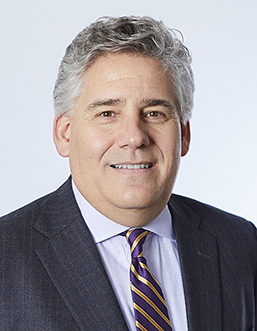Beginning March 23, 2020, St. Louis County and the City of St. Louis, in following suit with the State of Illinois, issued “stay in place” orders to drastically reduce the potential spread of COVID-19 (commonly referred to as the coronavirus). This is vital for many reasons, not the least of which is to keep our healthcare systems and workers from being overwhelmed. Were that to happen, the impact could be even more disastrous. Such orders place community association in a very unique scenario by being the primary location of where everyone would be staying.
This is to provide more general guidance on how every community association can address this pandemic in a professional and neighborly manner.
What do we do about meetings?
If the association is a Missouri nonprofit corporation, the Board can adopt emergency by-laws to maximize use of technology to: (1) allow online and electronic notices and elections, (2) expressly authorize a Board to transact business electronically without the necessity of unanimous consent, and (3) change quorum to a minimum number of ballots cast, and (4) hardship claims from owners related to enforcement and collections. These emergency powers are not, and cannot be, used to expand what actions an association would otherwise be permitted to take.
We do not suggest any in-person meetings of the board or the members. While we may find it “easier” to discuss issues and make decisions in such manner, “easy” does not warrant accidental exposure.
What about amenities and services?
An association, under the Saint Louis County and City of St. Louis orders, are an “essential business.” This makes sense since the association facilitates housing. Nonetheless, all amenities, such as gym, clubhouse, and pool, should be immediately closed. Services provided by the association should be evaluated for risk. If such services inherently have close interactions between owners (or staff/vendors), then the services should be immediately suspended to prevent potential exposure.
What about maintenance and work-orders?
We can wish that maintenance issues will not arise during this emergency but it is likely that the association had already planned on performing maintenance and repairs. We suggest prioritizing maintenance in the following order: (1) emergency repairs and maintenance, (2) cleaning of commonly touched surfaces, (3) maintenance that cannot be delayed, (4) maintenance that involves no contact with owners or residents, (5)
Exterior repairs made in open spaces are permitted to be conducted so long as social distancing is practiced along with any applicable safety guidelines. If the association is responsible for exterior maintenance and repair, we suggest work be prioritized as discussed above. If an owner is responsible for exterior repairs, the decision is the responsibility of the owner and contractor.
And repairs to the interior of a home or unit?
For a villa, rowhome, or single-family detached residence, the owner should discuss the maintenance and repair project with their contractor. If the work is to continue, social distancing and compliance any applicable safety guidelines are essential.
If access is needed through a common area, the association has the right to deny access to the contractor is the maintenance and repair does not otherwise impact the habitability of the unit. For example, painting, changing a light fixture, or obtaining an estimate or bid. Maintenance impacting habitability would be, for example, to remove a clogged drain.
What information can be shared if a resident contracts COVID-19 or is known to be exposed?
An association has no affirmative obligation to share private medical information once the association becomes aware, and, because of privacy laws, an association should not disseminate such information unless advised to do so by a government official or entity.
Is the association exposed to liability for not protecting residents or an owner from COVID-19?
An association does not have an affirmative obligation to protect the health and safety of residents particularly when the government mandates that such persons stay within their homes.
When an association undertakes a task or carries out an obligation, such as cleaning the common areas, the association cannot do so in a negligent manner. Accordingly, each association that has common hallways, elevators, a clubhouse or similar amenities should consider taking additional proactive measures including: (1) having cleaning done with increased frequency, (2) posting reminders from the Centers for Disease Control (“CDC”) or local health department on hand washing and other precautionary steps that can be taken, (3) prohibiting use of amenities such as the community gym, (4) installing hand sanitizer stations in convenient locations, and (5) planning for more extensive and thorough cleaning including steps that may be taken if HVAC systems are shared between the units and common areas.
What sources of information should we direct owners and residents to view?
A particular focus should be on dissemination of information from the CDC to the residents and owners. Information is available online here.
The link has “What you need to know” and “What to do if you are sick” pamphlets. As well as via the Missouri Department of Health.
The link also has additional information that may be posted and distributed. Only information from the CDC, the Missouri Department of Health, or local health departments should be relied upon and distributed.
What about payment of assessments?
None of the legislation passed or being discussed provides relief to community associations. Accordingly, the ability of the association to conduct its business remains contingent upon owner’s timely paying assessments.
Each association should advise owners that the resources being made available to lenders and business is simply not available to the association. Thus, it is not about a lack of compassion or desire, as there is no relief available. Owners need to continue to pay assessments in a timely manner. To help, the association can suggest owners to reach out to their lenders (mortgage, car, and credit card) to discuss options. To help bridge the gap between these programs being made available, we would suggest associations consider whether it would be appropriate to waive any late fees or interest that accrues during this emergency.
Should an association continue to inspect and enforce violations?
Similar to the obligation to pay assessments, each owner and resident needs to comply with the association’s governing documents. Absent an emergency or deadline that may impact enforcement, we suggest associations reduce inspections and provide owners with additional time to become compliant. We urge common sense and compassion in approaching noncompliance.
What about staff and employees?
As a community association and management company could be considered essential business under the orders of St. Louis County and the City of St. Louis, work should not continue as normal. Staff must diligently exercise healthy practices of washing hands regularly, not touching surfaces, covering coughs and sneezes (allergy season is here too), and consider wearing latex gloves that are changed regularly. With social distancing, this should reduce potential exposure to staff and employees.
Nonetheless, the association should plan on reduced staff. By prioritizing staff responsibilities and workflow, an association can professionally react to changes as they continue to develop including relying on volunteers in the community.
What about pay to staff?
Congress recently passed the Families First Coronavirus Response Act, which a summary can be viewed online here.
We fully anticipate additional changes to this law, which becomes effective April 2, 2020. Our Firm will continue to update the changes in the law through our Employer Blog. We strongly urge association to work with everyone with understanding and compassion because that is what will allow each and every community to weather this storm and its aftermath.


